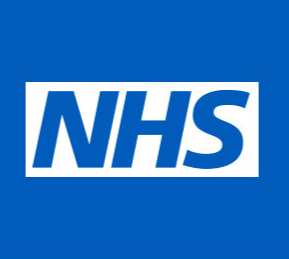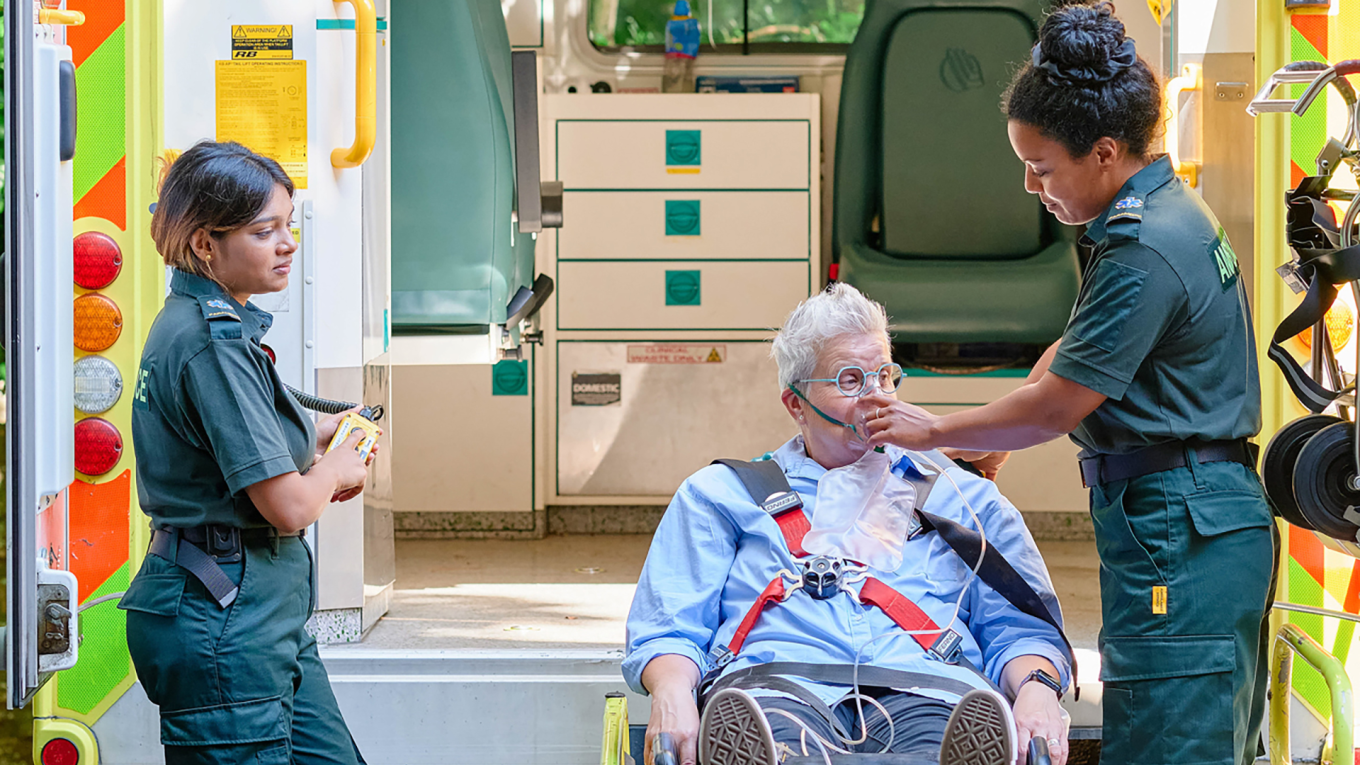
Paramedic
Paramedics are often the first to arrive when someone needs urgent medical help. It’s a fast-paced and vital role where you’ll need to stay calm under pressure, quickly assess the situation and take charge of providing life-saving care.

On this page
Introduction to the role
Being a paramedic means no two days are ever the same. You will work in a wide variety of emergency and non-emergency situations, using your judgement and clinical skills to assess a patient’s condition and make critical decisions. It is a role that requires quick thinking, resilience and the ability to take charge in high-pressure situations.
About the role
What does a paramedic do?
As a paramedic, you will be trained to resuscitate and stabilise patients using advanced techniques, specialist equipment and medication. In an emergency, this could include using a defibrillator, applying spinal or traction splints, or administering oxygen and drugs. You may work alongside the police and fire and rescue services, providing care in complex and sometimes dangerous environments. Supporting the relatives, friends or members of the public who are present is also an important part of the job.
Paramedics are often the senior member of a two-person team, working with an emergency care assistant or technician. You might also work independently using a motorbike or bicycle or provide telephone-based advice from a control room or clinical hub. The role involves close collaboration with other healthcare teams, such as GPs, occupational therapists, mental health professionals, diabetes specialists and hospital emergency staff.
Most paramedics are based at a local ambulance station and work shifts that include evenings, nights and weekends. You will be out in all weather conditions, ready to respond whenever and wherever you are needed.
What are the pay and conditions like?
If you work as a paramedic in the NHS, you’ll usually have a 37.5 hour working week, which will usually include some nights and weekends.
Most paramedics start at band 5 on the Agenda for Change pay scale. You’ll also receive at least 27 days of annual leave plus bank holidays, along with access to the NHS pension scheme and a range of staff discounts.
Where being a paramedic can take you
Once you have qualified as a paramedic, there are several career paths you could take.
You could:
become a team leader, supervising other paramedics and emergency care assistants
- specialise in an area such as stroke care
- work for the air ambulance
- take on a senior experienced paramedic role with greater responsibilities
- move into teaching, research or management
You’ll have regular professional development reviews to support your goals and keep your skills up to date. You may also choose to join the College of Paramedics to access further training, events and networking opportunities.
Life as a paramedic
Life as a paramedic
Person specification
Is being a paramedic right for you?
Being a paramedic means responding to situations that can be unpredictable and sometimes life-threatening. You’ll need to stay calm under pressure, communicate clearly with patients, their families and other professionals, and provide reassurance in moments of crisis. The role demands quick thinking, sound judgement and the ability to make precise decisions in fast-moving situations.
Ask yourself:
- Can I keep a clear head and make decisions quickly in high-pressure environments?
- Am I able to communicate effectively and reassure people in distress?
Find a course with UCAS
Want to explore the next step in traditional degree routes into the NHS? Explore courses related to paramedics with UCAS today.
Entry requirements and training
To become a paramedic, you will need to successfully complete an approved undergraduate or master’s degree in paramedic science. Once you have qualified, you will need to register with the Health and Care Professions Council (HCPC) before you can begin practising.
A full-time paramedic science course usually takes three to four years and combines academic study with practical training, including placements with ambulance services. Entry requirements vary between universities, but they often ask for two or three A levels, including a science, along with five GCSEs at grades 9-4 (A-C), typically including English language, maths and science. Equivalent qualifications such as a BTEC, HND or HNC in a science subject, a relevant T Level, a health or science-based access course, or equivalent Scottish or Irish qualifications may also be accepted. It is important to check the specific requirements of each university before applying. You will also be expected to show an understanding of the role and how your values align with those expected of healthcare professionals.
When applying to work for an ambulance service after qualifying, you must hold a full, manual driving licence. If you passed your driving test after 1996, you may also need an additional driving qualification to operate larger vehicles and carry passengers. The exact licence requirements can vary between ambulance services, so it is important to check what is needed for the role you are applying for.
Degree apprenticeship / student paramedic route
Some ambulance trusts offer the opportunity to study while working through a paramedic degree apprenticeship. These roles usually require at least five GCSEs at grade 4/C or above, including English, maths and science, or equivalent qualifications with a strong health or science focus. Employers will also expect a good level of physical fitness. Recruitment often involves several stages, including interviews, tests, fitness assessments and driving tasks.
Your employer and the government will cover the tuition fees for an apprenticeship, but instead of a student grant you will receive a salary. This route allows you to gain your qualification while building valuable hands-on experience from the start.
Find out more about routes into the NHS with UCAS.
Work experience
Applying for a course or apprenticeship as a paramedic is going to be competitive. If you're seriously considering it, it is a great idea to try and gain some prior work experience to strengthen your application. Visit NHS England to find out more about gaining work experience for careers in the NHS.
Financial help at university
You could receive at least £5,000 a year to help fund your studies while at university in England. Your personal circumstances and the course you choose may mean you could receive more. And the good news? You'll never have to pay it back.
Explore NHS Careers
There are over 350 different NHS careers and everyone makes a difference every day. Whether you’re still in education or thinking about changing careers, you'll get the information you need.